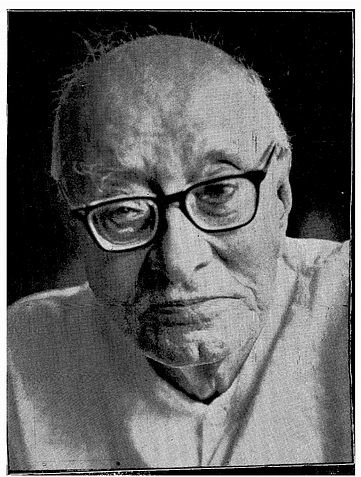
11 Things To Recollect About Rajaji
Some lesser known facets about Rajaji that are bound to offer a new glimpse to the man.
Rajaji’s Ramayana and Mahabharata are so famous that there is the well known joke about a schoolboy who thought he was the author of these epics! Many Swarajya fans may also be familiar with the facts that Rajaji was among the first to suggest ceding partial autonomy to Pakistan, introduce the sales tax, criticize the license-permit raj, support plebiscite for Kashmir, oppose Hindi imposition and canvass against nuclear tests. While he was the first Indian Governor General, he was also one of the first recipients of Bharat Ratna, the highest civilian award in 1955.
When I first read Rajmohan Gandhi’s biography alongside other published works, what struck me were the following less known facets:
1. Rajaji lost his mother at 20, wife at 27, a son-in-law at 44, a son at 58, his ‘master’ Mahatma Gandhi at 60, another son in law (Devdas Gandhi) at 69. And yet, he composed the moving song, kurai onrum illai, (No Regrets have I, Govinda!) which M.S Subbalakshmi’s rendition immortalized. No temple visits, no icons at home, no caste marks, just one hymn!
2. Rajaji was introduced to literature in Central Hindu College, Bangalore by a Scot, John Guthrie Tait (a brother of P.G Tait, the great physicist) to whom he, notwithstanding an intense disapproval of smoking, sent a pound of finest Indian tobacco every month! Monica Felton has noted that he arranged for someone to post the parcels to Tait even when he was in jail and even during the war.
3. Gandhi literally ‘dreamt up’ the idea of opposing the Rowlatt Act through a nation wide hartal of fasting and prayer while he was a guest at Rajaji’s house in Madras in 1919. Rajmohan Gandhi writes that ‘CR was so taken up by the idea that he at once drafted a call to the nation’.
4. As Premier of Madras Presidency, he refused to take the Rs 56,000 rupees emolument set by the Raj and drew only Rs 9000 a year including all allowances. As Governor General, he felt that Rs 20,000 was too high and was happy when the cabinet reduced it to Rs 5500.
5. One of his first measures as Premier was to announce that buttermilk would be added to prisoners’ diets!
6. He attacked slogan socialism but he was not against all state initiative; whether it is the agricultural debt relief act of 1937 which canceled debts where twice the amount of principal had been paid, or the Madras Pannayal’s Act of 1952 which mandated a fixed tenure of five years for tenants and minimum wages, he showed that prudent regulation by the State is critical for equitable growth.
7. He not only dismantled war time food controls in 1952 but also opposed gold control in 1963 on the ground that thousands of artisans would be ruined by such controls.
8. Rajaji advocated reserving dhotis and saris for the handloom sector so that the weavers’ market is protected from textile mills and even levying a license fee to encourage small hawkers to shift to handloom. This was better than asking the handloom sector to produce for export.
9. He wanted to clear footpaths of hawkers by providing them with overhead storage for their wares!
10. For someone vilified as brahminical, he did not hesitate to cast his Chairman’s vote favouring an ‘untouchable’ assigned with opening the water tap in a brahmin agraharam (against a Brahmin delegation) in the Salem municipal council in 1918, or break non-cooperation to defend a ‘pariah’ who had entered the Tirupati temple in 1925.
11. He was unequivocal that clearing slums and beautifying urban spaces was totally wrong. These people ‘who have somehow or other managed to find a site wherein a low mud wall and a coconut leaf roof put over it provide them a place to cook some food and where they could bundle themselves to sleep during nights, deserve better consideration than they get now from the authorities and are as necessary as the police and drain cleaners’. Rather than securing legalistic rights of government over unoccupied land, governments must evolve a housing plan for these workers.
Could it be that Rajaji’s conservatism dazzles because it is so completely suffused with a woman’s heart or as the difference feminists would put it, an ethic of caring?